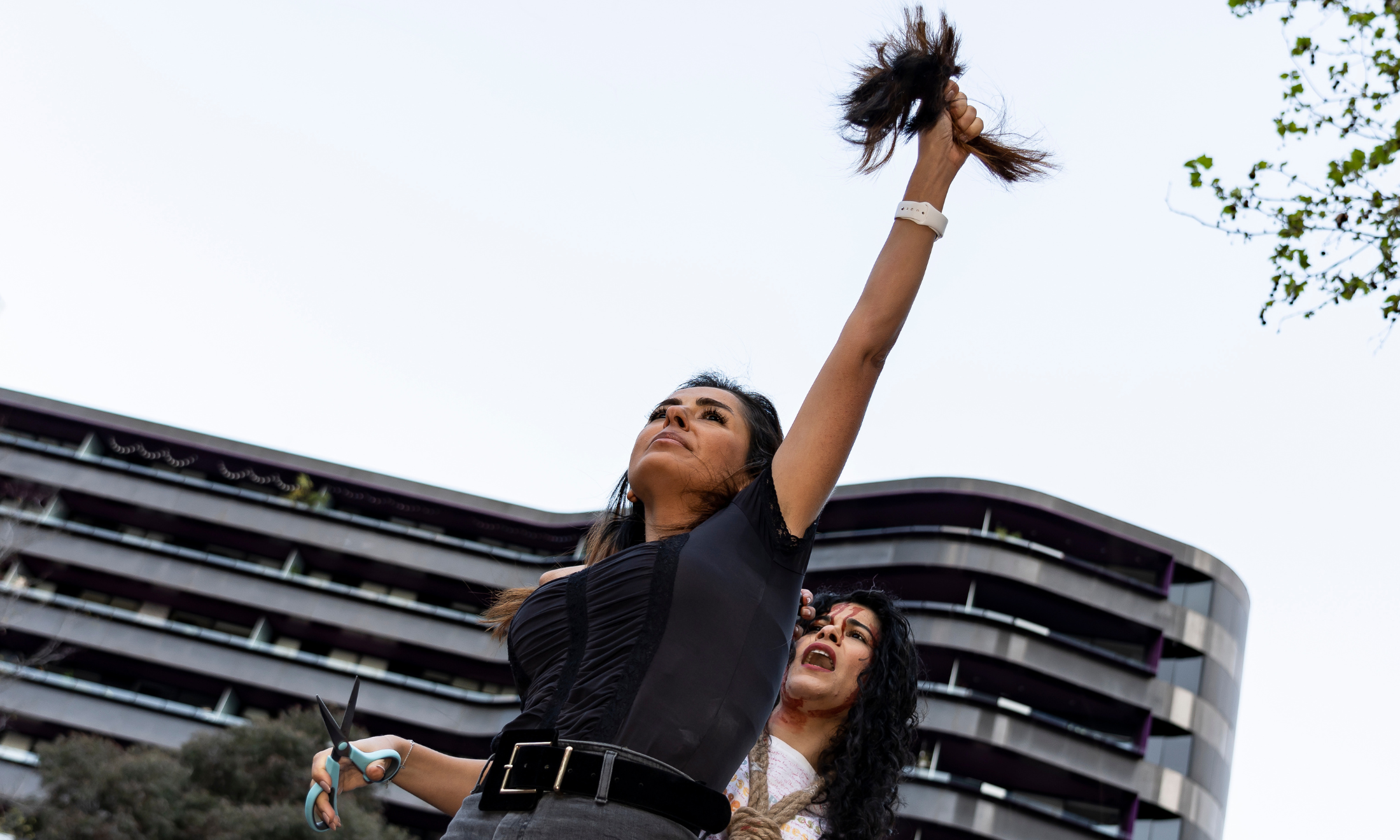
Canva via author
Finding my community around the Sizdah Bedar sofreh
Picnicking has been perfected by Iranians over thousands of years, and in London, they’re a piece of home.
Shiler Mahmoudi and Editors
01 Apr 2022
For many Brits, the humble picnic is something we enjoy but don’t think too deeply about. It’s an activity to soak up the sun – sipping tinnies, eating olives and crisps – with bonus points if you plop down somewhere with a good view. Recently though, I have been thinking about why picnics mean a bit more to me than the average British person.
I’m a second-generation Iranian woman born and raised in London. I have been to Iran once, an experience I will treasure for the rest of my life, since working in the media means it is too risky to be able to return. Like many people born in a country that isn’t their native homeland, I often feel like I’m in limbo, unsure where exactly I fit in in society. It makes me feel confused about my identity.
Through therapy, I’ve started to think about the moments in my life when I have felt true belonging. One of the most obvious is Sizdah Bedar – an ancient Persian celebration of nature that can be traced back thousands of years. Sizdah Bedar takes place on the thirteenth and final day of Nowruz, the new year for many Iranians, Kurds and other countries across Central Asia. On this day, Iranians pack their bags and head outside to a park, forest or even coast for a picnic celebration.
“The day is full of incredible food spread out on Persian rugs ranging from barbecued meat, rice mixed with nuts and berries that look like jewels”
The day is full of incredible food spread out on Persian rugs ranging from barbecued meat, rice mixed with nuts and berries that look like jewels and the most extensive hot and cold mezze you’ve ever seen. Dishes include kotlet (meat and potato patties that you eat with bread), tomatoes and pickles and kookoo sabzi (frittata full of dill, parsley, and coriander fenugreek). We empty our sabzeh (sprouts that we grow over the new year period), into a stream and young people tie a knot of grass to make a wish to find love, secure a new job or have a baby.
Singing and dancing is a must, with men and women from different Iranian ethnic groups taking the floor to dance to their native music. The Azeris dance in a quick tempo with an emphasis on footwork, and the Kurds dance in a line while holding hands with the leader holding a piece of fabric, something I loved getting involved with as a child.
As the picnic goes on, traditional instruments such as a dayereh drum might come out to accompany singing and poetry, while everyone drinks tea or beer, depending on the vibe. The adults would sit around and tell old stories from years ago or back home while I sat listening and laughing.
“The adults would sit around and tell old stories from years ago or back home while I sat listening and laughing”
But for me, the best part of celebrating Sizdah Bedar was always making friends with other Iranian kids from across London and playing games such as vasati, which is similar to dodgeball and volleyball. Being able to hang out with kids who understood the parts of my culture that no one else could was exciting, and I loved speaking in jumbled up English and Farsi, bringing my two identities together.
Evidently, Iranians go hard for their picnics, but it’s important to note that they’re not just reserved for the holidays. Think of Sizdah Bedar as the ultimate picnic with the rest of the year still getting the picnic treatment, but just slightly less extreme. Any patch of grass (or ground) can get it, anytime and anywhere. Whether it’s sitting on the side of a highway, late on a weekday evening or in bizarre places like a car park, Iranians will be there with a sofreh (cloth) on the floor, enjoying food and company.
I have always found these cultural quirks mesmerising, but there was a time when the younger, less-sure-of-myself me also found them overwhelming. I was terrified that passers-by might look at us and judge us, and the thought of bringing a white friend along would have made me pass out.
“Since growing older and slightly wiser, I relish these moments “
God knows if anyone really gave a fuck about what we were doing, but the fear of someone saying something unkind was always there. However, since growing older and slightly wiser, I relish these moments and honestly, they nourish me.
Not knowing where you fit in culturally is challenging to navigate, but I feel blessed that I have these spaces to feel like I’m part of a community. There’s a comfort in this sort of familiarity that one can only gain by being around people that are speaking your language.
When I visited Iran in 2016, the sound of Farsi and the sight and smells of traditional food everywhere I went felt like a big hug. It kills me that I probably won’t experience it again and it’s something I will have to learn to live with.But at least I get to savour the next best thing. Sitting around a sofre somewhere, eating the many delights that my mum has cooked and playing games with family and friends, I get to feel at home during Sizdah Bedar celebrations.
Like what you’re reading? Our groundbreaking journalism relies on the crucial support of a community of gal-dem members. We would not be able to continue to hold truth to power in this industry without them, and you can support us from £5 per month – less than a weekly coffee. Our members get exclusive access to events, discounts from independent brands, newsletters from our editors, quarterly gifts, print magazines, and so much more!









